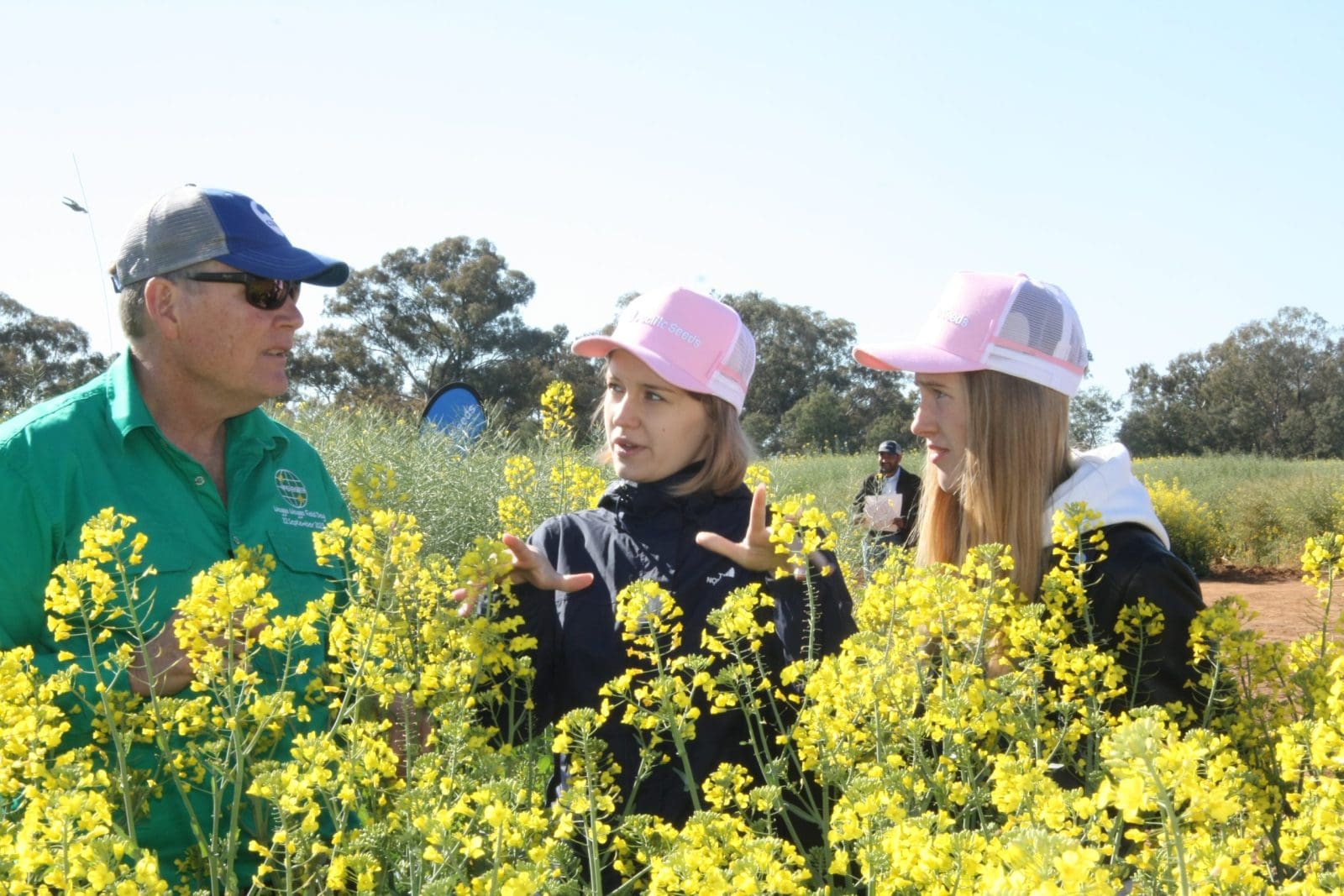
CSIRO farming systems agronomist Dr John Kirkegaard discusses canola breeding with Ukrainian Scientific Institute of Plant Breeding researchers Maryna Dzuh and Svitlana Omelchuk.
CLOSE to 100 international delegates and even more from across Australia gathered in the eastern Riverina district of New South Wales on Friday for a canola field day which opened the program for the 16th International Rapeseed Congress.
Held at the Wagga Wagga Agricultural Institute, the field day showcased hundreds of legacy, current and developing canola varieties that demonstrate the evolution of the Australian canola industry.
The field day was jointly hosted by the NSW Department of Primary Industries, the Grains Research and Development Corporation, the Australian Oilseeds Federation and the Global Council for Innovation in Rapeseed and Canola.
Behind Canada, Australia is the world’s second-biggest exporter of canola, and as well as being an important cash crop, canola also plays a crucial role in mixed farming as a valuable dual-purpose crop.
Speaking at the field day’s opening, AOF president Rosemary Richards said R&D, as well as sustainability, have helped to make Australian canola a world leader.
“The field day today is just amazing,” Ms Richards said.
“It has been innovation and research and development that has been the backbone of canola’s success.”
Canola has now overtaken barley as Australia’s number-two grain export, behind only wheat.
GCIRC president Rob Wilson said the R&D on display at the field day reflected achievements by the public and private sector, and growers across an ever-increasing geographic area.
“With innovative new equipment and better varieties, we are able to adapt really well,” Mr Wilson said.
Mr Wilson gave thanks to WWAI director Deb Slinger and her team for preparing the site to include not just a display of varieties but also a look at canola in farming systems, and under a variety of stressors.
“It’s a great way to bring some of our international guests to see what goes on.”
Many of those at the field day are in Sydney this week for the IRC forum which is being attended by Grain Central.
- Consultant Sandy Biddulph, Cootamundra, emeritus professor Ted Wolfe, and Nuseed market development manager Chris Roberts, Dubbo.
- University of Hertfordshire PhD students Evren Bingol and Laura Sapelli and supervisor Professor Yongju Huang, all researchers working on blackleg disease in the United Kingdom.
- GRDC northern region grower relations manager Graeme Sandral, NVT senior manager Sean Coffey and NVT operations manager Ben O’Connor.
- Ag N Vet agronomists Taylor Krause, Forbes, and Alice Abbott, West Wyalong.
- Pacific Seeds Albury-based territory manager Karl Schilg, and two of Bayer’s Wagga Wagga-based team, intern Georgia Monkley and market development agronomist Gus Maclennan.
- Syngenta seedcare technical manager Sean Roberts and Junee agronomist Angus Knight, Glass & Co.
- Visiting researchers from Southwest University in China’s Chongquin City Ti Zhang and Nengwen Yen.
- Field day committee chair Trent Potter, Naracoorte, SA, AOF CEO Nick Goddard and president Rosemary Richards, chair of the IRC 2023 committee and GCIRC president Rob Wilson, Wagga Wagga, and retired NSW DPI canola specialist Don McCaffery.
- RMS Wagga-based consultant Bec Dean, chair of South Africa’s Oilseed Advisory Committee Dr Erhard Briedenhann, Rivonia, and Cootamundra-based RMS graduate agronomist Angus Malmo.
- ANU researcher Julie Leroux, Canberra, with Wagga Wagga Agricultural Institute director Deb Slinger. and NSW DPI director general Scott Hansen.
- Two of BASF’s Horsham-based team canola breeder Tim Davey and leading agronomist Mark Phelan.
- Pioneer Horsham territory sales manager Ashleigh Byrne and technical support manager Alex Lucas.
- Junee Rotary Club members Graham Paton, Bill Crowe, Stuart Robilliard, Alan McKenzie and John Higginson.
- The field day included many of Australia’s early canola varieties developed by state agricuture departments.

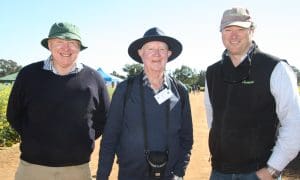
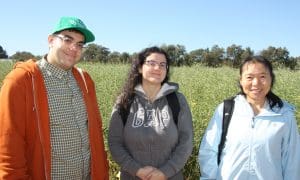
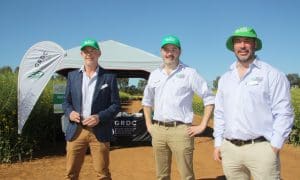
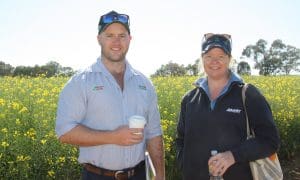
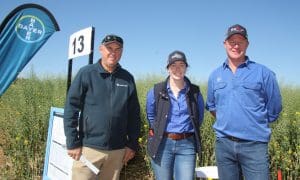
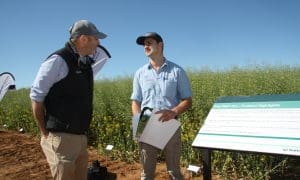
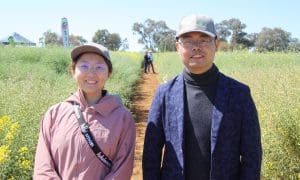
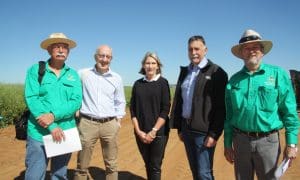
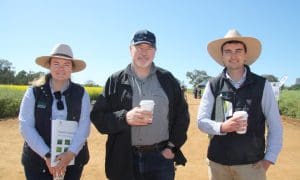
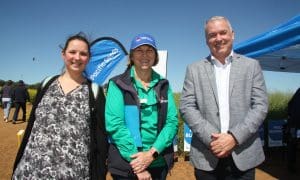
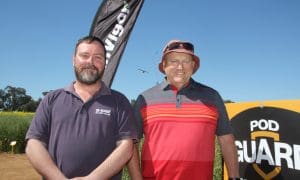
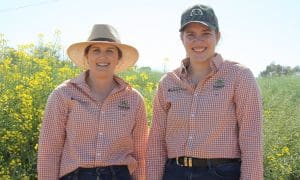
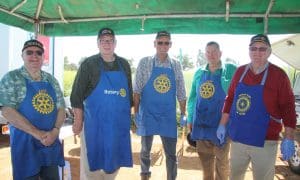
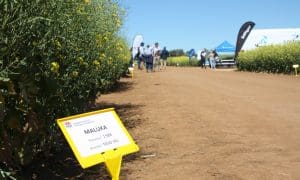


HAVE YOUR SAY